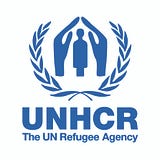5 ways to support refugees during the coronavirus crisis

The coronavirus has changed our lives. We fear for our loved ones. We live isolated from friends and family. Some of us are mourning people we’ve lost to the disease. Yet stories of hope, resilience and expressions of gratitude around the world remind us that we are not alone.
Many refugees know what it’s like to feel isolated, cut off from support networks and fearful for the future. During this crisis, we’ve seen countless examples of how they are giving back to the communities that have welcomed them — cooking meals for front-line health-care workers, grocery shopping for the elderly and immunosuppressed, donating supplies and offering their skills as doctors, nurses, and scientists.
We want refugees to know we stand with them during the corona crisis. Here are five ways you, too, can show solidarity with refugees right now.
❶ Join an online cultural or language exchange with refugees
Refugees are language experts, artists, musicians, teachers, doctors, nurses and others with diverse talents and skills. Online cultural exchanges provide an opportunity for those who were forced to flee war or persecution to share skills, talents and comforts from home with their new community. People stuck at home looking to learn new languages, cook new cuisines or master new hobbies can find online classes and tutorials. For a great example, check out NaTakallam, which provides income to refugees while allowing people across the world to learn foreign languages.
❷ Help teach children about the refugee experience — and learn alongside them
UNHCR, The United Nations Refugee Agency, offers a toolkit to help educators, parents and others teach primary and secondary school students about refugees, asylum-seekers, migrants and those who are stateless. The kit provides videos, activities and lesson plans to help children learn why people flee their homes, why it’s important to treat everyone with kindness and dignity and facts about displaced people around the world. The materials are broken down into age-appropriate sections and offer step-by-step instructions for lessons. The toolkit is free.

❸ Support refugee-owned businesses (or those that support refugees)
Refugee entrepreneurs and business owners help their local economies to thrive. When you’re shopping online from home, think about buying from refugee owned or run stores. If you have an online shop, think about sourcing from refugee artisans.

❹ Start a virtual book club that includes books by refugee authors or share books about the refugee experience with younger readers
This UNHCR and New York Public Library book list reflects the contributions of diverse writers — who also happen to be refugees or children of forcibly displaced families. These six Canadian-authored titles introduce younger readers to the resilience of refugee children.

❺ Donate
We understand that in these uncertain times, taking care of your own family and friends comes first. But if you have any extra to give, please remember that war and persecution do not stop, even during pandemics. UNHCR continues to provide lifesaving aid to refugees fleeing violence and conflict while also working to fight the spread of Covid-19. We are training health workers, providing hygiene supplies, such as soap and paper towels, and supporting national health services. Your donation will help aid these efforts.

UNHCR, the UN Refugee Agency, is a global organization dedicated to saving lives, protecting rights and building a better future for refugees, forcibly displaced communities and stateless people.
